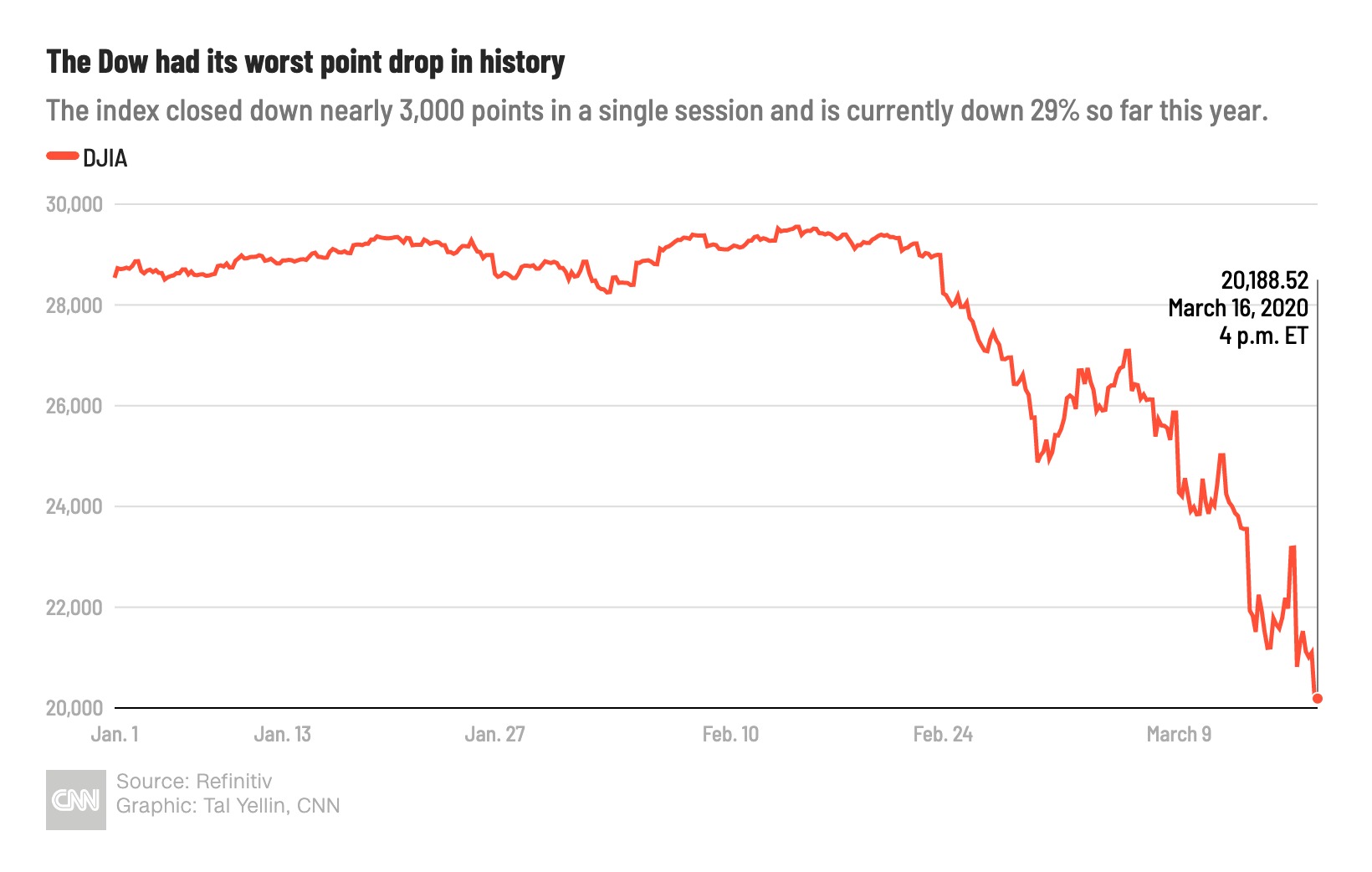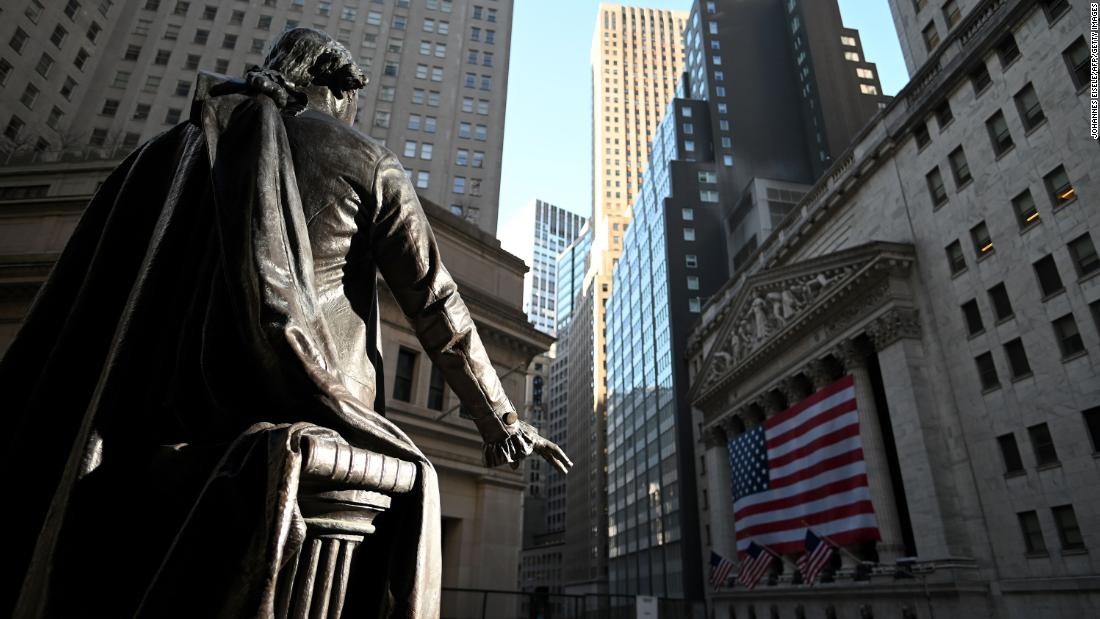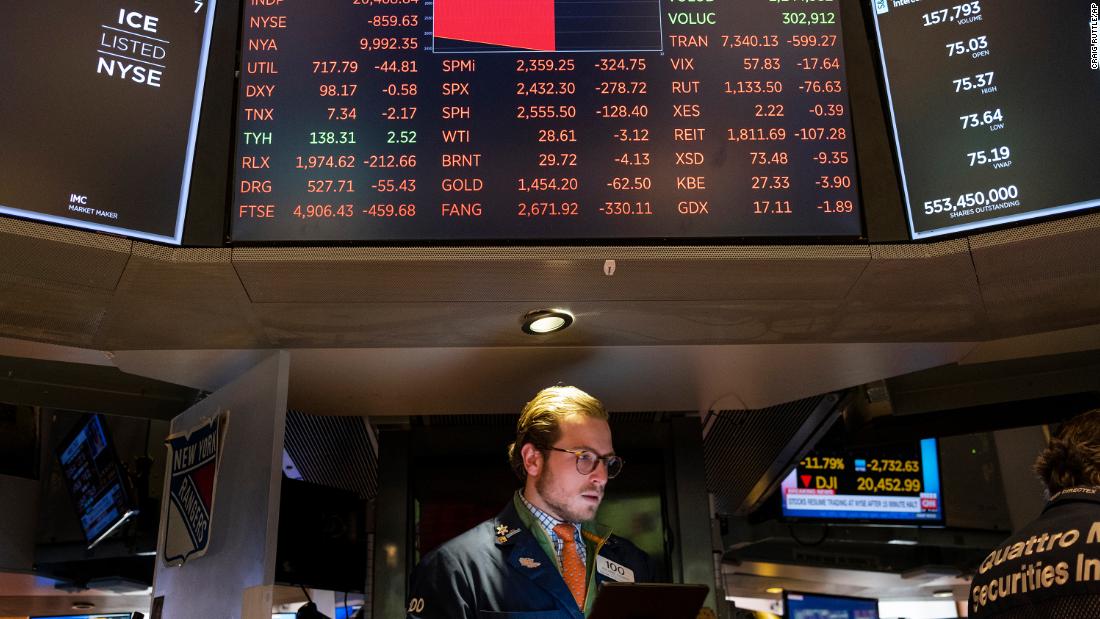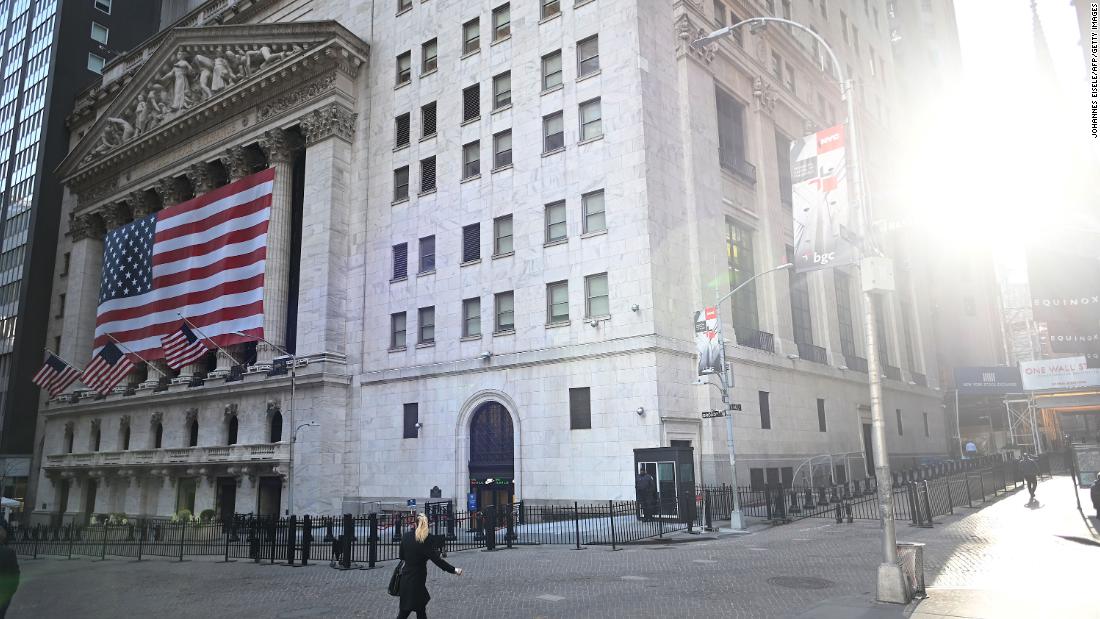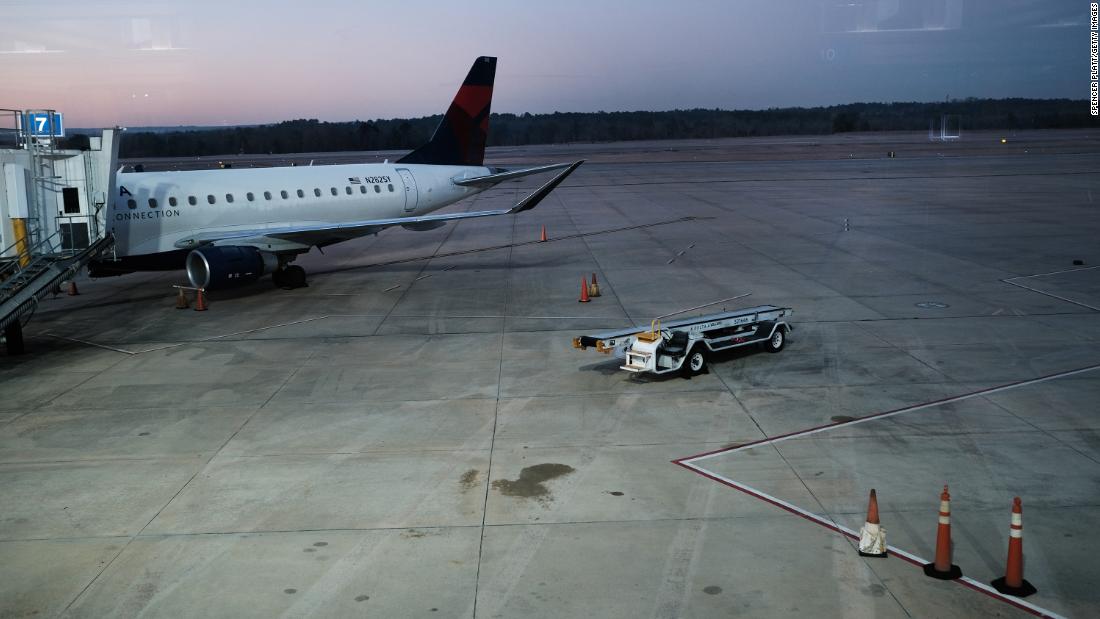Airlines slammed by the coronavirus are requesting an aid package from the US government that could amount to up to $58 billion, according to industry group Airlines for America.
The aid is requested in the form of loans, grants and tax relief. The ask includes up to $25 billion in grants for passenger air carriers and $4 billion in grants to cargo carriers, and the same amounts in loans or loan guarantees. Airlines for America said in a release:
"US carriers are in need of immediate assistance as the current economic environment is simply not sustainable. This is compounded by the fact that the crisis does not appear to have an end in sight."
Two sources told CNN the aid package has been discussed with key lawmakers and staff, on Capitol Hill and in the Trump administration.
The discussions were described as being at an early stage. But one of the sources noted there is a growing recognition from the federal government that conditions "are getting very bad, very fast."
Airlines for America predicted the seven US airlines it represents could "run out of money completely sometime between June 30 and the end of the year" with losses that could be as high as $53 billion this year.
Most airline stocks are getting clobbered, again: Delta Air Lines (DAL) is down 6%, United Airlines (UAL) sank 10% and Southwest (LUV) shares are 8% lower.
However, American Airlines (AAL) is up 6%.
